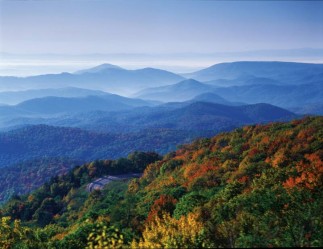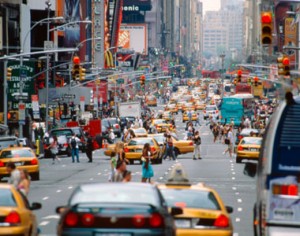 My viewpoint on climate change most closely resembles the “ecological lens” described by Parker and Blodgett. I grew up chasing frogs in muddy streams and burying walnuts for the squirrels to eat in the winter. Yup, I was that kid: the one with mulch in her pockets, who never owned a white shirt because they couldn’t keep me out of the red Virginia clay. Needless to say, I developed a sense of belonging outside, and my passion for environmental action comes from a powerful feeling of moral obligation.
My viewpoint on climate change most closely resembles the “ecological lens” described by Parker and Blodgett. I grew up chasing frogs in muddy streams and burying walnuts for the squirrels to eat in the winter. Yup, I was that kid: the one with mulch in her pockets, who never owned a white shirt because they couldn’t keep me out of the red Virginia clay. Needless to say, I developed a sense of belonging outside, and my passion for environmental action comes from a powerful feeling of moral obligation.
At times, it’s an angry approach. Often, it’s a fearful one. The climate crisis to me doesn’t feel like a great opportunity for new technologies, for human creativity to triumph again. Let’s not forget that it was our own technological brilliance that got us into this mess. While it will certainly be a major part of combating climate change, it seems to me that technological progress has proved itself dangerous as a dominant philosophy of humankind. The cautious little voice inside me murmurs nervously that we cannot just keep living the wasteful, everyday lives that we lead and trust technology to clean up after us. It’s too late for that to be enough, and we have too much to lose.
And there is the heart of the problem: our increasing disconnection, this perceived “distance” from the natural world. Now that so many people live in high-rise, concrete apartments on  wide expanses of asphalt, of course the earth feels far away! If your water comes from a pipe in your kitchen and your food comes from a cold, white grocery store, of course nature doesn’t seem like an active member or influence over your life. It’s too distant to inspire a personal appreciation for the soil that grew your tomatoes, or the chicken that laid your eggs. Even if you know where your food is from, and even if you know all the dangers and potential, consequences of global climate change, without some personal attachment to the earth, making changes to your lifestyle to protect it may seem abstract and forced. To really inspire effective changes on an everyday level, you have to know the issues, but more importantly, you have to care about them on a personal level. Sadly, it’s a smaller number of people who grew up playing tag behind the stalls of the farmer’s market, for whom the earth is an integral, obvious member of our lives everyday.
wide expanses of asphalt, of course the earth feels far away! If your water comes from a pipe in your kitchen and your food comes from a cold, white grocery store, of course nature doesn’t seem like an active member or influence over your life. It’s too distant to inspire a personal appreciation for the soil that grew your tomatoes, or the chicken that laid your eggs. Even if you know where your food is from, and even if you know all the dangers and potential, consequences of global climate change, without some personal attachment to the earth, making changes to your lifestyle to protect it may seem abstract and forced. To really inspire effective changes on an everyday level, you have to know the issues, but more importantly, you have to care about them on a personal level. Sadly, it’s a smaller number of people who grew up playing tag behind the stalls of the farmer’s market, for whom the earth is an integral, obvious member of our lives everyday.
The success of the environmental movement is hinged upon inspiring governments, business, and individuals to care about the earth, and to make choices everyday to limit their impact on the planet. The technological and economical lenses are means to an end, but first, everyone has to know, and everyone has to care.